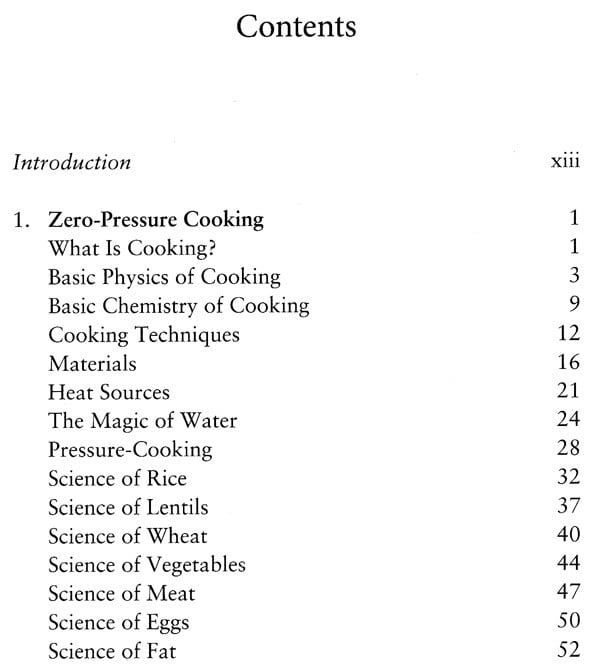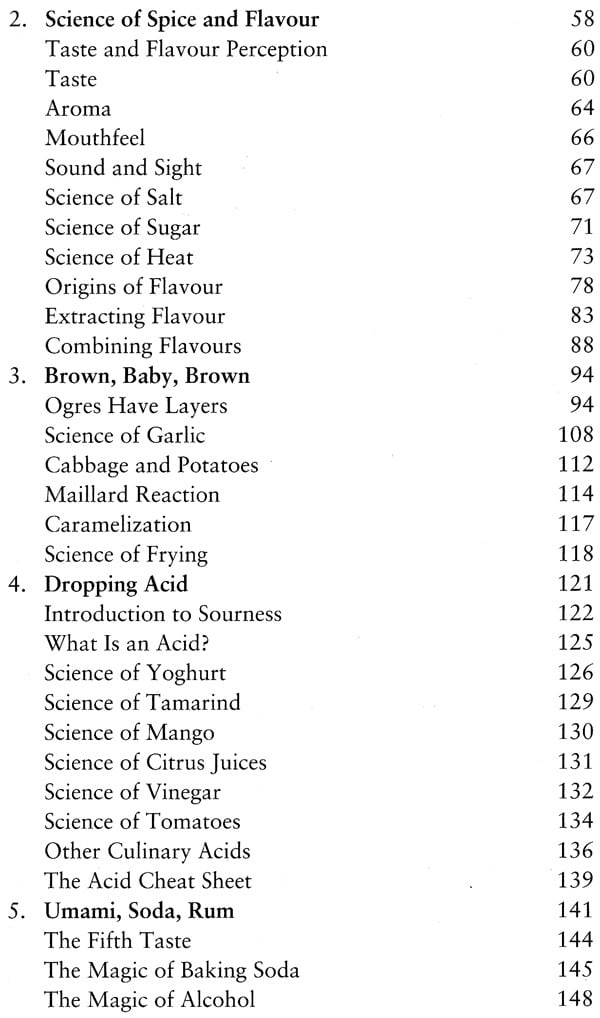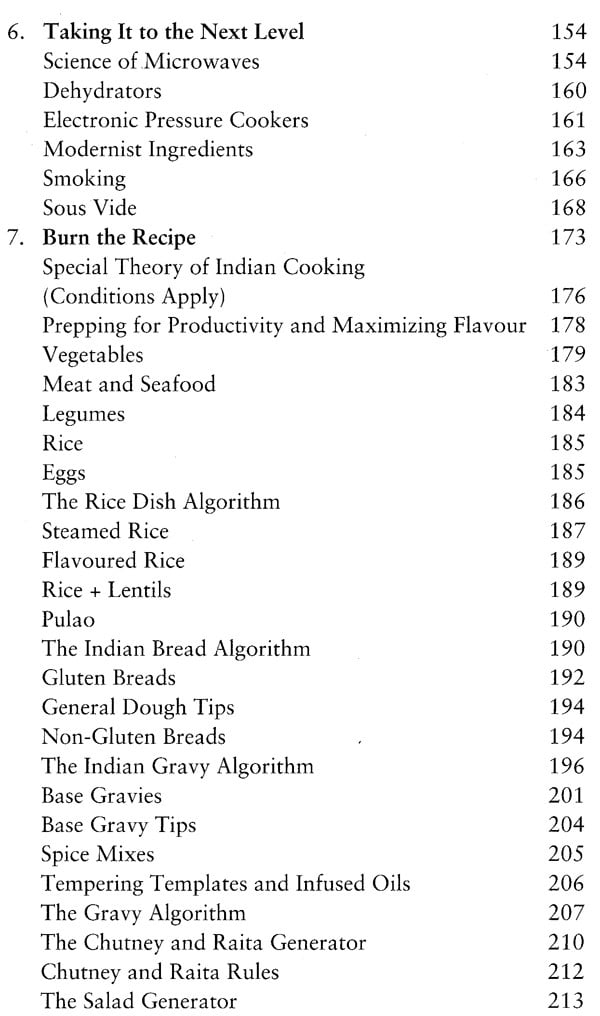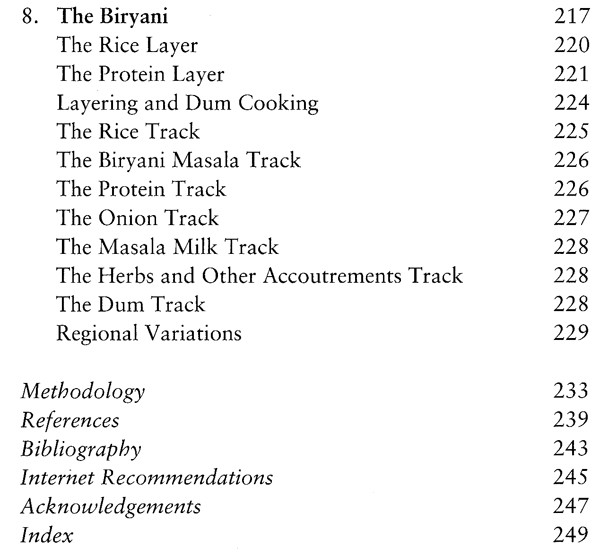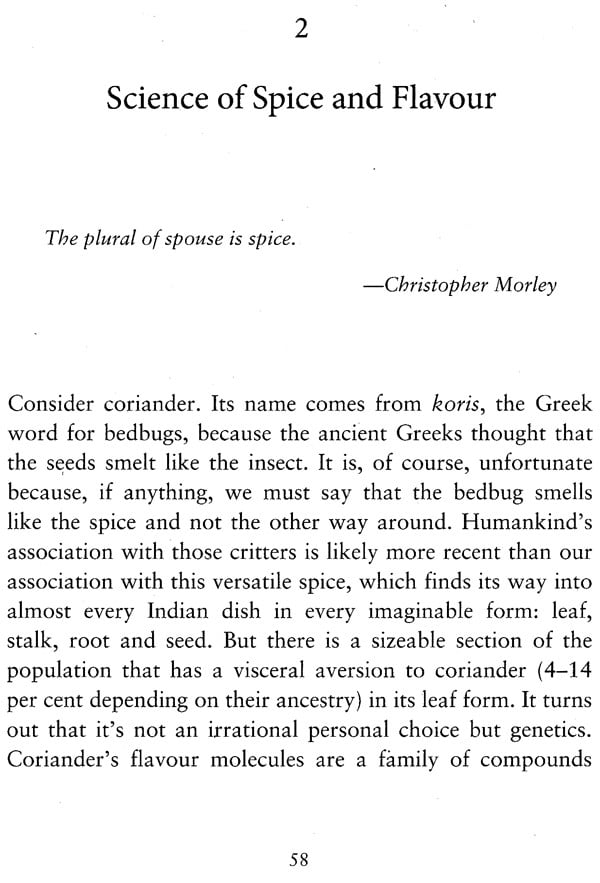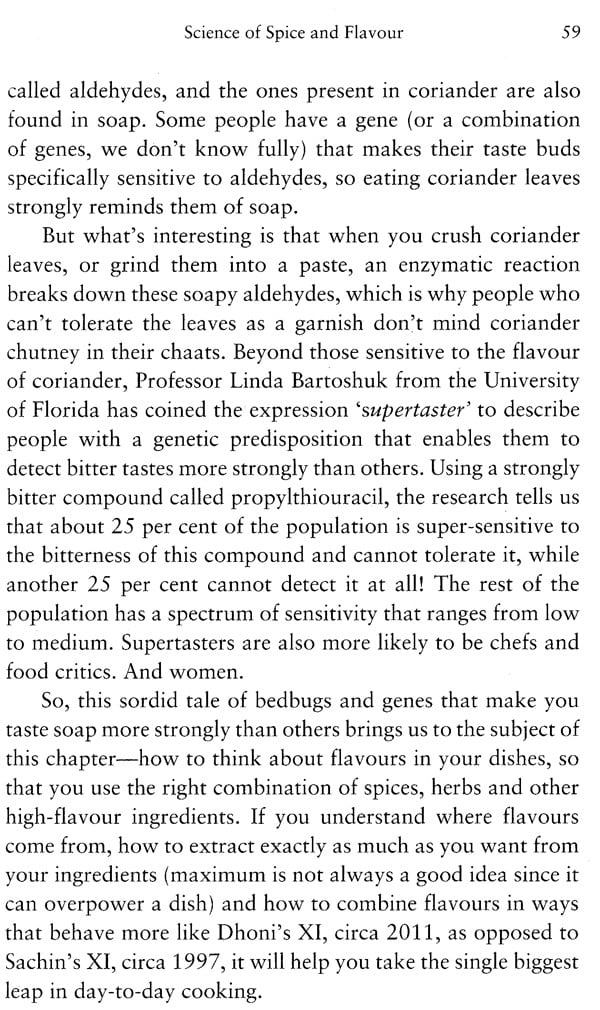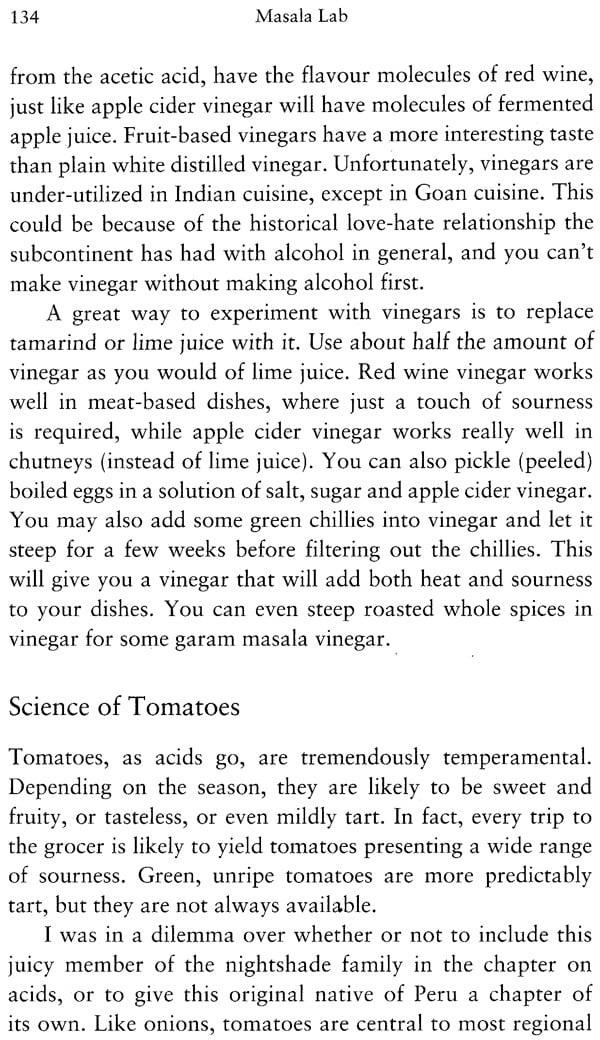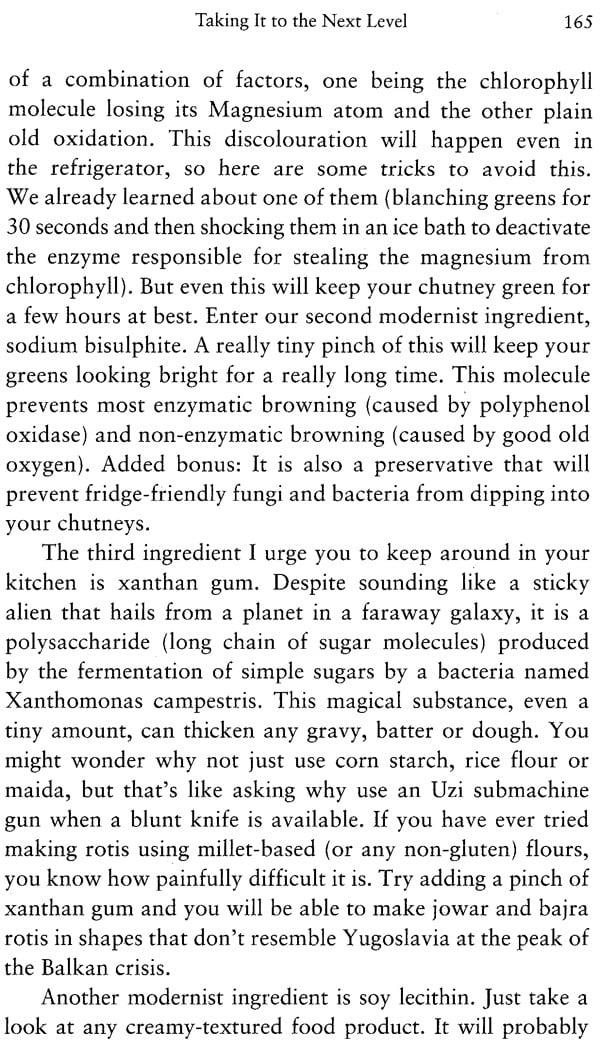
Masala Lab- The Science Of Indian Cooking
Book Specification
| Item Code: | AZA975 |
| Publisher: | PENGUIN RANDOM HOUSE INDIA PVT |
| Language: | English |
| Edition: | 2020 |
| ISBN: | 9780143451372 |
| Pages: | 259 |
| Cover: | PAPERBACK |
| Other Details | 8.50 x 5.50 inches |
| Weight | 240 gm |
Book Description
Cooking, people will tell you, is an art. Indian cooking, in particular, is supposed to be an art wrapped in oriental mystique, soaked in exotic history and deep-fried in tradition and culture. Western food is supposed to be scientific and bland, while Indian cooking, we are told, is all about tradition and flavour. Some people innately have a knack for it, and many don't. The Tamil expression kai manam, which literally means 'hand flavour', is used as a compliment for those who have somehow had this arcane knowledge handed down to them. The metaphor also hints at where exactly that knowledge is stored (hint: not the brain) and, thus, is hard to transfer to another person.
The Covid-19 pandemic transformed life as we knew it. The fact that cooking is an essential life skill stares us more intensely in the eye than at any time so far. But learning to cook Indian food, it turns out, is a byzantine maze with conflicting instructions and pseudoscience. The convenience of being able to Swiggy some amazing butter chicken from a dhaba 5 km away, and the fact that more and more young people are living by themselves in cities, which are not their home towns, means that even if they neither have the time nor the daily who can mentor them in the way your grandmother learnt to cook, from an older member in her family. And because we have never bothered to build a standard, documented model of underlying cooking methods and the science behind those techniques, a metamodel, if you will, Indian cooking continues to wrongly be considered all art and no craft.
This is a pity, given that this part of the world has contributed traditional culinary methods the scientific West has embraced as new-age food science in recent years. The curcumin in turmeric is now a superfood, as is the drumstick, which is sold as Moringa powder in Brooklyn for an arm and a leg. Fermentation and sprouting of legumes go back thousands of years in India, while pickling as a technique extend the shelf life of food in a hot and unforgiving climate has been around forever. There is no dearth of hey-look-our ancient-tradition-is-now-science chest-thumping on social media, but what is missing is any serious attempt at actually documenting these culinary practices as part of a practical engineering playbook, outside of the cultural, historical and spiritual contexts.
**Contents and Sample Pages**
